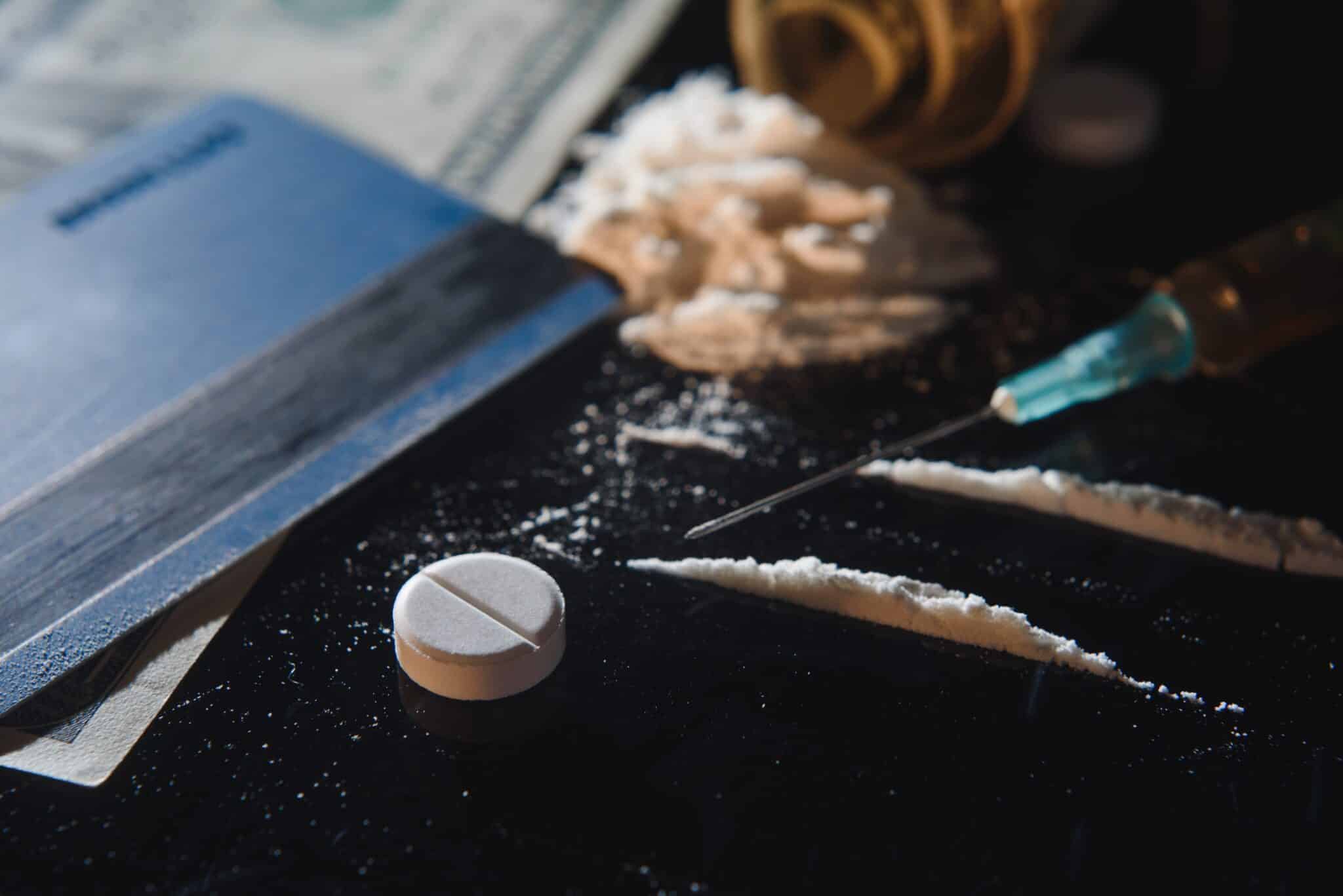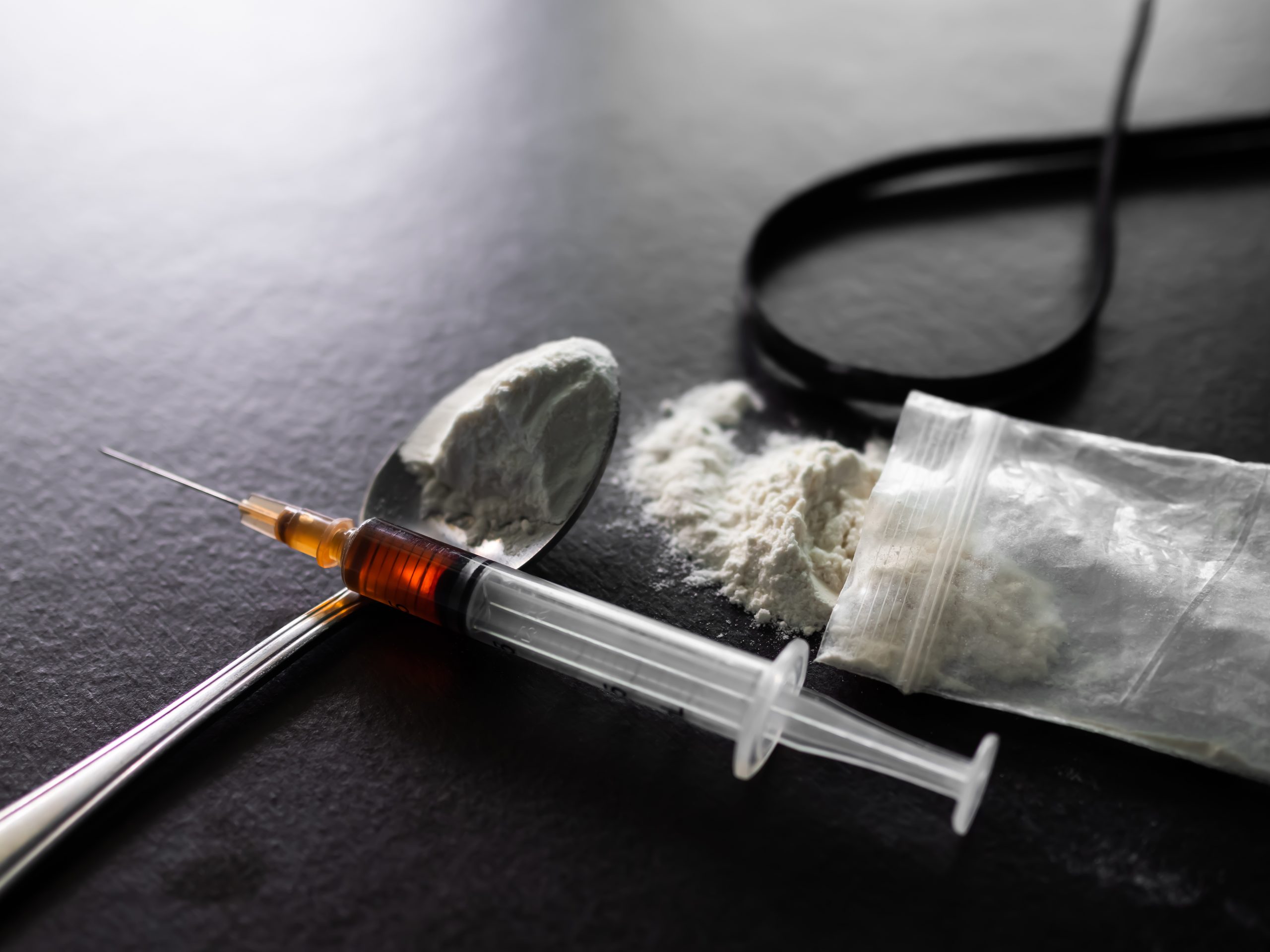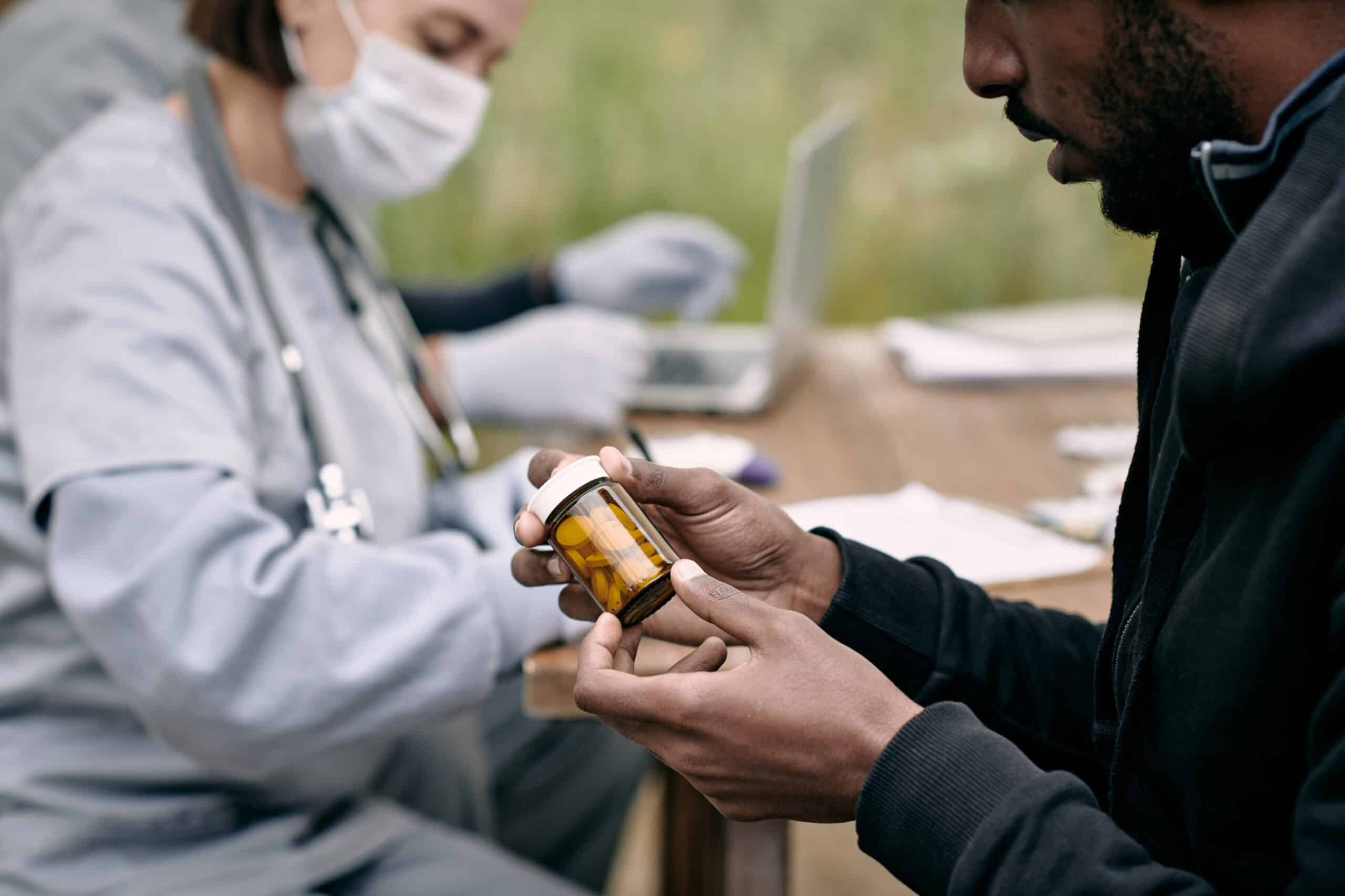WHAT IS THE DIFFERENCE BETWEEN DRUG POSSESSION AND INTENT TO DISTRIBUTE IN MISSOURI?

Drug charges in Missouri come with life-changing consequences, but not all charges are treated equally. The difference between simple possession and possession with intent to distribute can mean the difference between probation and a long prison sentence.
If you’ve been arrested in Kansas City with drugs in your possession, you might wonder:
“Will this be treated as possession — or will prosecutors try to prove intent to distribute?”
At KC Defense Counsel, we can explain how the state of Missouri law separates the two, and why hiring an experienced Missouri criminal defense attorney is critical.
SIMPLE POSSESSION IN MISSOURI
Possession charges apply when you knowingly have a controlled substance for personal use. Under RSMo 579.015, this includes illegal drugs like cocaine, heroin, and methamphetamine, as well as prescription medications if you don’t have a valid prescription.
- Class D felony: Possession of most controlled substances.
- Misdemeanor exception: Marijuana possession under 35 grams was previously a misdemeanor, but recreational use has changed some marijuana penalties.
Even “simple” possession can still leave you with a felony record that affects employment, housing, and your future.
POSSESSION WITH INTENT TO DISTRIBUTE
The stakes rise dramatically when prosecutors believe you intended to sell, share, or distribute drugs. Under RSMo 579.020, possession with intent to distribute means you had drugs not just for yourself, but to give or sell to others.
Penalties depend on the drug and amount but can include:
- Class C or B felony charges.
- Sentences ranging from 3 years to 15 years in prison.
- Much higher fines and collateral consequences than simple possession.
HOW PROSECUTORS PROVE “INTENT TO DISTRIBUTE”
The state doesn’t need direct evidence of a drug sale to charge you with intent to distribute. Instead, prosecutors look at the circumstances surrounding your arrest, including:
- Quantity of Drugs: Larger amounts suggest more than personal use.
- Packaging: Multiple small baggies, capsules, or containers can indicate sales.
- Scales and Paraphernalia: Digital scales, baggies, or other tools point toward distribution.
- Cash: Large amounts of money found with drugs can be used as evidence of dealing.
- Text Messages or Communications: Phone records showing sales activity.
This means you could face felony “intent to distribute” charges even if you never sold drugs — if the state thinks it can convince a jury you planned to.
COMMON DEFENSES TO POSSESSION AND DISTRIBUTION CHARGES IN MISSOURI
An experienced Kansas City criminal defense lawyer can fight these charges by:
Challenging the search: If police violated your rights during a stop or search, evidence may be suppressed.
Arguing personal use: Your attorney can argue the drugs were for personal use, not distribution, which can reduce felony penalties.
Questioning ownership: If drugs were found in a shared car or home, the state must prove they belonged to you.
Exposing weak evidence: Prosecutors often rely on circumstantial evidence; your lawyer can show it doesn’t meet the legal standard of proof.
WHY YOU NEED A TRUSTED KANSAS CITY DEFENSE ATTORNEY ON YOUR SIDE
Drug cases in Missouri move fast, and prosecutors are aggressive. Without skilled representation, you could face years in prison based on assumptions about your intent.
A seasoned defense lawyer can:
- Negotiate with prosecutors for reduced charges.
- Argue for drug court programs or probation instead of prison.
- Protect your rights if law enforcement cut corners during investigation.
- Take your case to trial when necessary.
At KC Defense Counsel, our affordable and trustworthy Missouri possession charges defense attorneys have defended countless clients across Kansas City against both possession and distribution charges. We know how prosecutors build these cases — and we know how to dismantle them.
- Simple possession means drugs for personal use — usually a Class D felony.
- Possession with intent to distribute means prosecutors think you planned to sell — punishable by 3–15 years in prison.
- Prosecutors use circumstantial evidence like packaging, cash, or text messages to prove intent.
- A skilled Kansas City criminal defense attorney can challenge evidence and fight for reduced charges.
When your future, freedom, and reputation are on the line, you need a Kansas City criminal defense lawyer who knows how to fight for you. At KC Defense Counsel, we have successfully defended clients across Missouri against charges ranging from misdemeanors to serious felonies. Don’t face the police, prosecutors, or the courtroom alone — our experienced attorneys are here to protect your rights and tell your side of the story.
If you’ve been charged with drug possession or intent to distribute in Missouri, don’t wait. Call KC Defense Counsel today for a free, confidential consultation with an experienced drug crime defense attorney.
Cities we serve: Adrian, Archie, Bates City, Belton, Blue Springs, Buckner, Butler, Cameron, Claycomo, Cleveland, Drexel, Fairview, Ferrelview, Gladstone, Grain Valley, Grandview, Greenwood, Houston Lake, Independence, Kansas City Missouri, Kearney, , Knob Noster, Lake Lotawana, Lake Tapawingo, Lake Waukomis, Lake Winnebago, Lawson, Lee’s Summit, Liberty, North Kansas City, Oak Grove, Oakview, Parkville, Peculiar,, Platte City, Platte Woods, Plattsburg, Pleasant Hill, Raymore, Raytown, Riverside, Smithville, Sugar Creek, Tracy, Warrensberg, Weatherby Lake, and Weston.
Statewide: Missouri State Highway Patrol and Sheriff Counties we serve: Bates County, Cass County, Clay County, Jackson County, Platte County, Ray County.
Contact our experienced Kansas City criminal defense lawyers near me in Missouri and let us help begin building your defense. Let us help.
Disclaimer: This page is for informational purposes only and does not create an attorney-client relationship. Always consult qualified counsel regarding your unique situation.




Recent Comments